Why India's GST is one of the world's most complex tax reforms
- Published
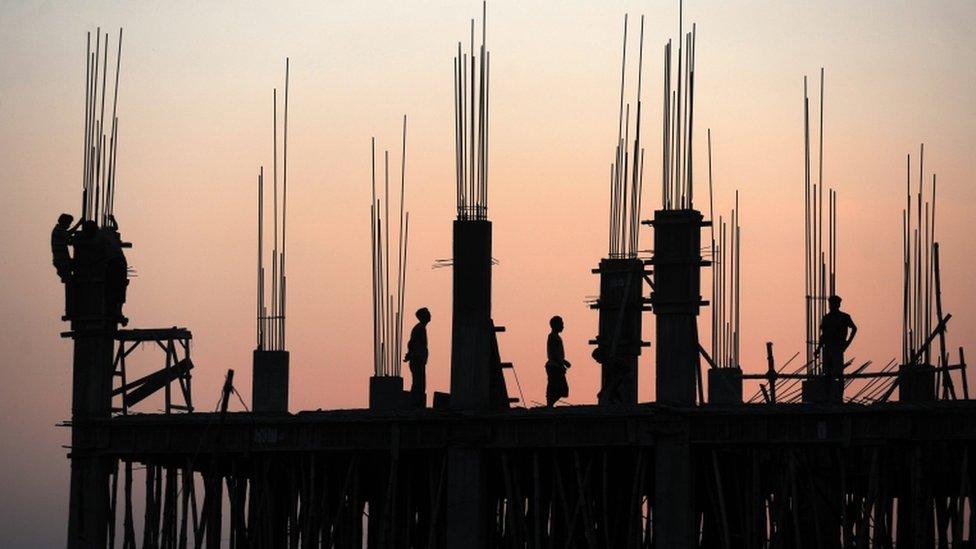
India is the world's fastest growing large economy
Will India, a $2 trillion (£1.5tn) economy with 1.3 billion consumers, now become a truly single market?
Many believe the landmark goods and services tax bill - passed by parliament on Wednesday evening, after years of filibustering by the ruling BJP and main opposition Congress - is a key step in that direction.
It is also the most significant tax reform since independence for what is now Asia's third largest economy.
The GST subsumes India's messy plethora of indirect taxes, duties, surcharges and cesses into a single tax.
It is expected to:
ease a cumbersome tax system
help goods move seamlessly across state borders
curb tax evasion
improve compliance
raise revenues
spur growth
stimulate investment
make investing and doing business in India easier
Complex reforms
Some 160 countries, according to consulting firm Deloitte, have some form of GST or value added tax.
The federal and state governments will jointly administer India's dual GST. This means it will be a set of 38 different taxes:
a GST for each of the 29 states and seven federally administered union territories
a federal GST
an integrated GST on inter-state supplies of goods and services
It, as The Economist says, is "not quite an act of fiscal unification, external" but simpler than the thicket of taxes it will replace.
What promises to one of the world's most complex tax reforms is expected to be serviced by state-of-the-art technology.
Indian software giant Infosys is building a gigantic electronic infrastructure, external - a GST portal - where taxpayers can register, make payments and file returns. Some 7.5 million businesses will be covered by the tax.
Clearly, a successful GST in India will be a minor miracle.
"No country of comparable size and complexity has attempted a tax reform of this scale," says Harishankar Subramanian, of Ernst and Young.
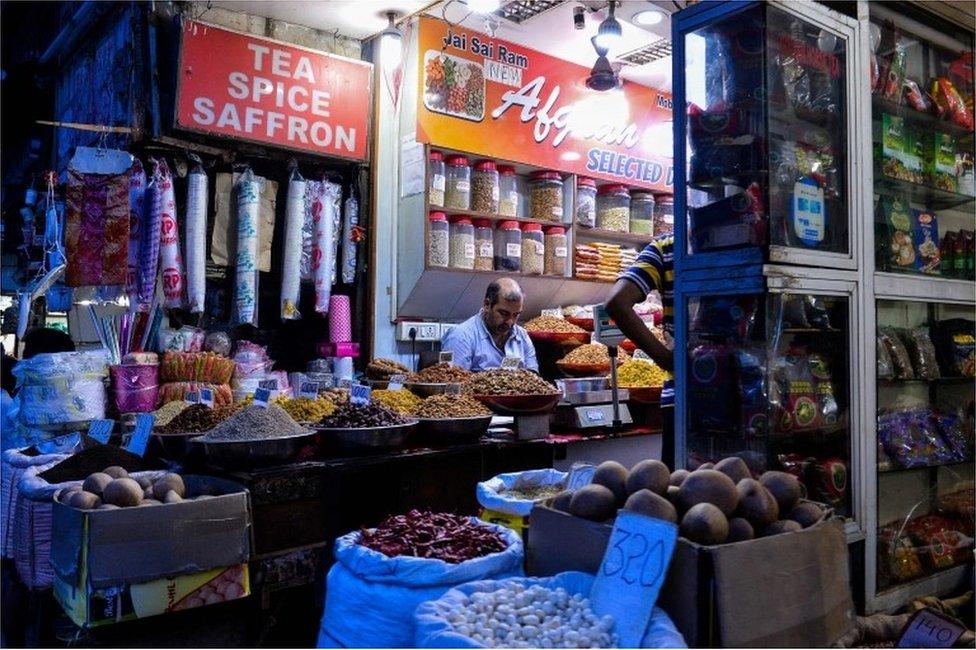
It is not clear whether small businesses are ready for the tax...
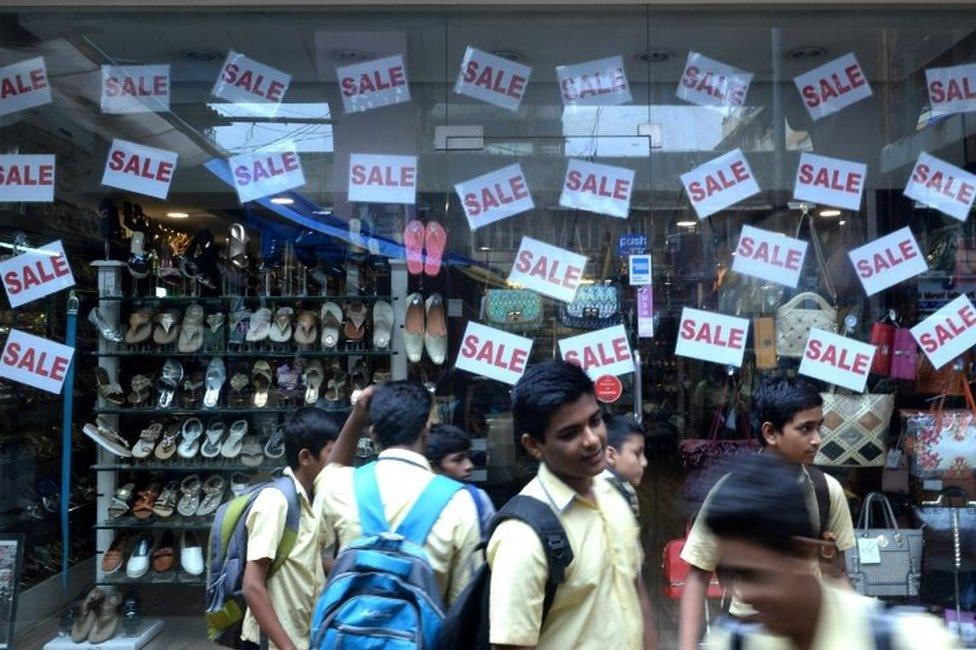
...or whether the tax with stoke inflation
The GST is also a potential game-changer as the burden of taxation moves from the state of manufacture to the state of consumption of goods and services.
Experts believe fears that revenues of manufacturing hubs - such as Gujarat and Maharashtra - will be hit are unfounded as such states attract more workers, who make up a growing base of consumers.
But some of the biggest beneficiaries, they say, will be populous, manufacturing-weak states - Bihar and Bengal, for example - who have a large number of consumers.
"By and large, it is a win-win situation for both the centre and and the states," says Mr Subramanian.
'Backroom plumbing'
Mihir Sharma, author of Restart: The Last Chance for the Indian economy, calls the GST "completely revolutionary, the sort of economic backroom plumbing that changes your life without you even noticing it".
But India's GST is also far from perfect.
For one, the tax will not be imposed on highly lucrative - and rent-seeking - alcohol, oil products and real estate industries. Shrinking the ambit of the tax means giving up a good chunk of revenues.
A steep tax could easily make some goods and services expensive - the government apparently favours an 18% GST rate - and stoke inflation.
Differences could easily flare up between the centre and the states over the rate and tax-sharing arrangements.
Implementing the complex new tax system could be fraught with glitches. Reports say only 20% of companies are actually getting ready for the tax.
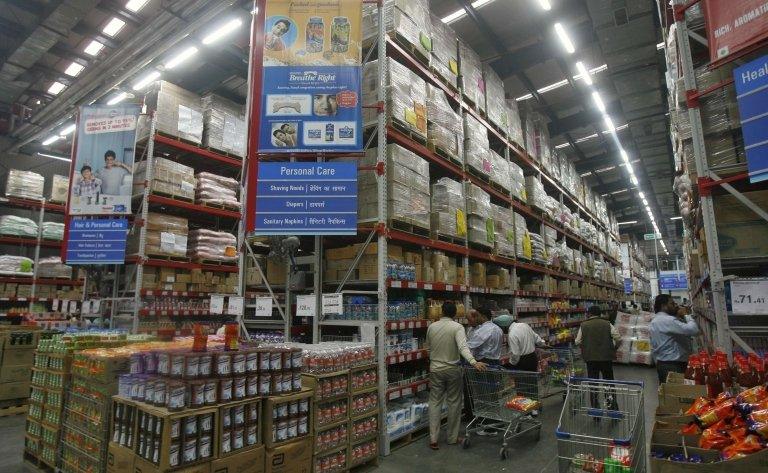
The tax aims at making India a single market
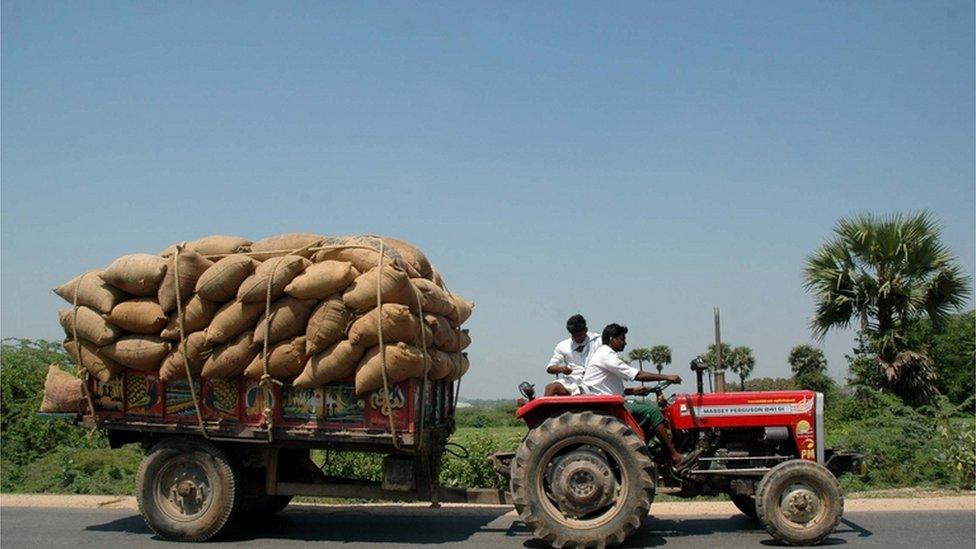
The tax will help goods move seamlessly across state borders
Also, more importantly, GST, by itself, is no magic pill.
India's debt-saddled state-owned banks need to clean up their books and ease lending. The government should move swiftly and imaginatively on creating jobs, boost agriculture and ensure social stability for long-term and inclusive growth.
India also needs to mop up a lot more income tax - only 1% of Indians pay the tax, external and evasion is pervasive. Successive governments appear to be helpless in reforming a corrupt tax-collection machinery.
But most believe that even an imperfect GST law should be given a chance to succeed.
Revenue Secretary Hasmukh Adhia and economic adviser Arvind Subramanian say no country has claimed a flawless GST, external since inception, and further and better change in complex systems is incremental. Agrees economist Vivek Dehejia: "The perfect ought not become the enemy of the good, especially as a less-than-perfect GST which can be improved down the road will be better than our current patchwork quilt of taxes, which prevents India from being stitched into a single market."
One nation, one tax gets going, headlined a newspaper, external on Thursday morning. It's not going to be an easy journey, external.